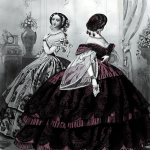We should think before we speak. We can take our beliefs too seriously. And we can take them too personally, too. Differences of opinion are NOT always attacks on our characters.

I practice a very eclectic spirituality. Religions are like languages. I am fluent in several traditions and conversant in several more. I believe that everyone is related and everything is connected. Beyond that, I do NOT hold many beliefs, and I do NOT hold any beliefs too tightly. My spirituality is grounded in objective evidence and subjective experience, not speculative theology.
As a result, I often participate in some non-Christian communities and some progressive Christian communities that are far removed from conservative Catholicism or Evangelical Protestantism. In these spaces, I have some perspective on different traditions. Also, I have some perspective on my inherited tradition. And, I see the wisdom in other traditions.
Is Honesty the Best Policy?
I wrote about the Buddhist precepts here. In our Saturday precept study, we discussed several of the precepts about honesty, particularly those concerning false speech, self-praise, and slander. When I was in first grade, I cheated on a test, and I lied about it when my teacher confronted me. My teacher was a ruler-wielding nun in a traditional habit, pretty scary to a six-year-old.
Anyway, I was “scared straight.” Since then, I have generally told the truth, almost to a fault. But, telling the truth can present its own challenges. And for many years, I spoke truth to power. Looking back, I see that I did some damage in the name of telling the truth, by speaking out.
In later years, I sought reconciliation. Looking back, I see that I did some damage in the name of preserving the peace, by NOT speaking out. The nuns rightfully taught us that lying was wrong, but they emphasized personal perfection. They suggested that living a moral life was a spiritual self-improvement program, recording our sins so that we could recall them in the confessional.
When we discuss the Buddhist precepts using real-life examples, we see that moral precepts are more than absolute rules or ironclad standards for individual spiritual self-improvement. Rather, precepts are practiced in the community, and the measure of whether we are helping or hurting has more to do with how we impact others than with how we improve ourselves.
Should We Speak Up or Shut Up?
Sometimes, I am struck by the synchronicities of everyday life. The day after my Buddhist precept course, I attended a Quaker worship service. Both focused on the need to discern when to speak.
I wrote about Quaker worship here. Quaker worship consists of sitting in silence, typically for one hour. For the first 30 minutes or so, participants clear their minds to hear the Spirit’s promptings. Eventually, a few members might share their promptings with the community.
In our Sunday meeting, several participants rose to speak about “resistance.” When we are listening, either to an inner voice or an outer voice, how do we respond when we see evil or injustice? After the meeting, we discussed a popular Quaker pamphlet about worship meetings. The pamphlet discussed whether to remain silent or whether to speak in a worship meeting.
In the last 400 years, the Quakers have landed on the right side of history on many moral questions, including slavery, misogyny, homophobia, and war-mongering. They got there by listening. And in Four Doors to Meeting for Worship, William Taber says that silent ministry is often more important than spoken ministry.
In Friends for 300 Years, a history of the Quaker movement, Howard H. Brinton suggests that we follow Jesus’ example. Brinton says, “The spoken word should be a simple affirmation of truth rather than an argumentative defense of it. The method of Jesus was to state a truth which the hearer could recognize as such without debate.”
We Should Think Before We Speak
We should think before we speak during worship service in our spiritual community. Also, we should think before we speak when talking about politics and religion in our larger communities. Further, this is helpful to remember even when we are simply stating the truth.
Are we adding to the discussion? I just wrote about fiscal policy here and here and here and here. I wrote about it because I know something about it, having advised state and local governments for 25 years and prepared federal tax returns for 15 years. Often, I am surprised to find people speaking and writing about things that they do NOT know anything about. Why do that?
And are we helping others? Recently, I had a conversation with a friend. I stated a fact, and he brusquely told me, “Look, I don’t care about the facts. To me, this is philosophical, not factual.” Now, I care MUCH more about facts than about beliefs or opinions. But, to me, the discussion was over. If we can NOT agree on the facts, the we can NOT agree. What is the point? Who can be helped?
Are we lowering the temperature? Would we rather build a bridge or dominate a discussion? Even if we have a factual basis and a winning argument, how do we benefit by pummeling someone? For many people, beliefs are more important than facts. Often, we are more attached to beliefs than we are to facts. Do we need any more rancor in these divisive times?
Are we seeking understanding? When I meet someone with a different worldview, I ask open-ended questions to develop perspective. “Why do you say that? What is the other side of the story? What do you assume when you say that? And what circumstances might change your mind? Would you feel the same if you were inside, rather than outside the situation?” Otherwise, why engage?
We should think before we speak. We can take our beliefs too seriously. And we can take them too personally, too.
If you want to keep up with the latest from You Might Be Right, please subscribe.
The Way received a 2024 Nautilus Book Award.
If you enjoyed this article, please leave a comment at the bottom of this page.
Thanks for reading You Might Be Right!!














